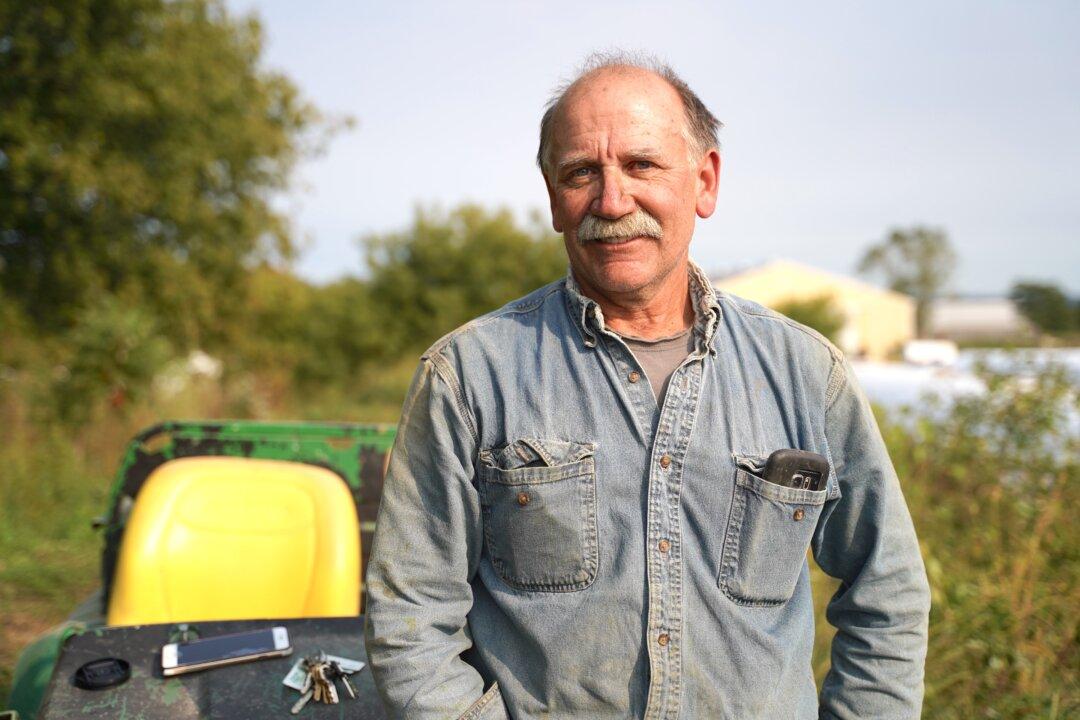PLATTEVILLE, Wis.—Tom Weigel, a third-generation dairy farmer in Platteville, likes how the Trump administration has helped farmers since the pandemic upended the market. After four years of losses amid low milk prices, he was able to finally break even a few months ago.
“Trump is taking care of the farmers. He is listening,” Weigel told The Epoch Times on his farm on Sept. 21. Weigel voted for Donald Trump in 2016, and plans to do so again in November.





